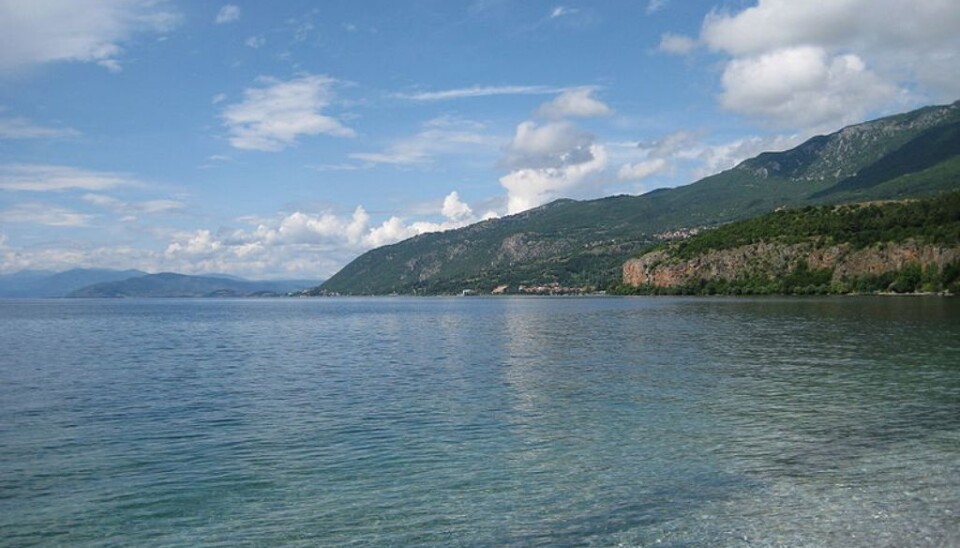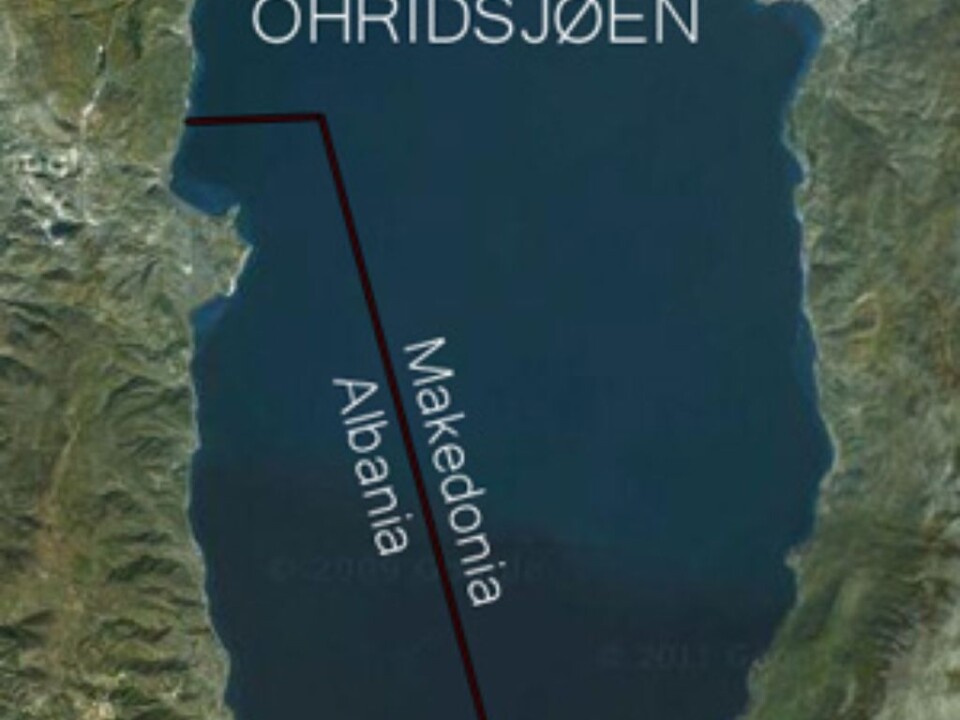An article from NIVA - Norwegian Institute for Water Research

Water research across borders in the Balkans
For the first time, biologists from Albania and Macedonia have worked together to improve ecological status in Lake Ohrid.
Denne artikkelen er over ti år gammel og kan inneholde utdatert informasjon.
“This has never been done before,” says Susanne C. Schneider, researcher at the Norwegian Institute for Water Research (NIVA).
She is referring to a recent project where scientists from Albania and the Republic of Macedonia cooperated in monitoring Lake Ohrid.
Side by side, researchers from the two countries studied algae, water plants, and other organisms such as snails and insect larvae.
Harmonization
Biologists from the respective countries had previously worked in separate parts of the lake, and never cooperated. In this project, which has been funded by the Norwegian Ministry of Foreign Affairs’ West-Balkan-initiative, Albanian researchers have for the first time taken samples in Macedonia and vica versa.

“The harmonization of monitoring methods has been an important step in the implementation of the Water Framework Directive and demanded close cooperation between representatives from the two countries,” Schneider says.
“The project has been successful also in this area, and it is a good example of how science and politics can go hand in hand to improve water quality of lakes.”
Eutrophication
The project is the first in Albania and Macedonia which has used biological methods as described in the Water Framework Directive. It is at the same time the first project which has mapped ecological status for the entire lake and hence crossed national borders.
The enrichment of an ecosystem with chemical nutrients, typically compounds containing nitrogen, phosphorus or both – so called eutrophication – leads to algae bloom and an increase of other organisms.
A mass-development of water organisms is not desired.
Misled by phosphorus
When algae and water plants which grow at the bottom of a lake receive phosphorus, the phosphorus may disappear from the water because it is taken up into the biomass of the algae or plants while they grow. Thus, when concentration of phosphorus in the water is measured, it may well be low and researchers could easily be led to believe that everything is OK.
In Lake Ohrid, chemical water samples indeed showed that the levels of phosphorus were low, which could lead to the conclusion that the lake was not affected.
Biology, however, showed different results.
Natural results
Despite the low concentrations of phosphorus, there were many algae along the lake’s shoreline, Schneider explains.
“Through studies of water plants, benthic animals and algae – in addition to the water-chemical samples – we discovered that organisms feed on phosphorus to build biomass. In an ecosystem like Lake Ohrid, biological and chemical studies will therefore show different results. This does not mean that the respective results are wrong, but that it is a natural result of the processes in this ecosystem.”
Serbia and Montenegro next
The Water Framework Directive states that all water bodies should at least reach what authorities call good ecological condition. This condition is defined by comparing water samples with a so-called reference condition, which is defined as the status an ecosystem would be in if it was not affected at all.
“However, Lake Ohrid is too affected, so we could not find any un-impacted reference sites in the lake.”
“Therefore, what needs to be done next is to examine unaffected lakes nearby to find a basis for comparison with our finding from Ohrid,” Schneider says.
This step involves further crossing of borders. In a project application, the researchers have suggested to include two additional countries in the cooperation: Serbia and Montenegro. Particularly in Montenegro they expect to find unaffected lakes.
Cooperation between nations in the quest for reference conditions is recommended in the Water Framework Directive, and will at the same time presumably have positive effects in further cooperation among the region’s scientists.
------------
Read the Norwegian version of this article at forskning.no






























